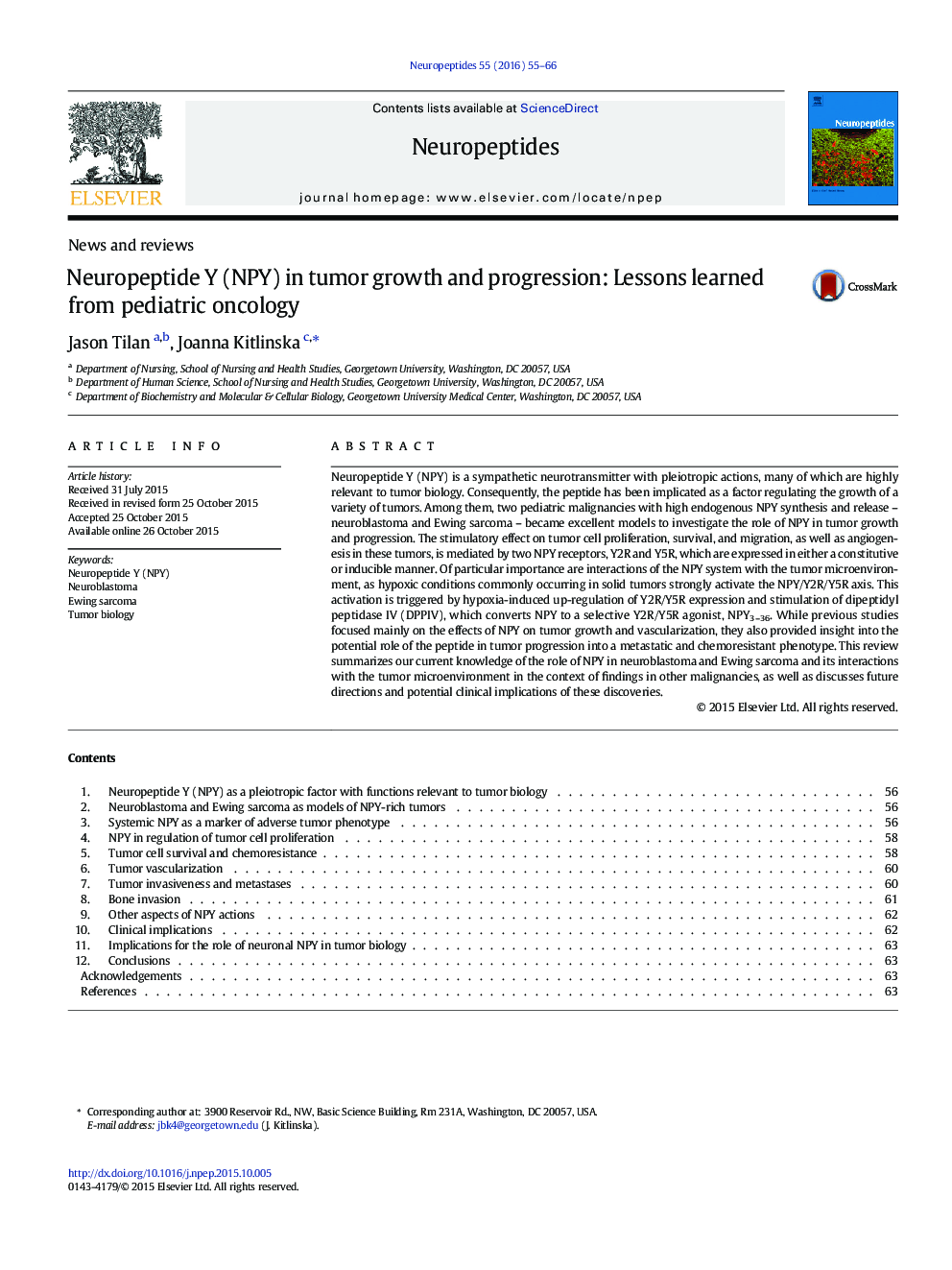| Article ID | Journal | Published Year | Pages | File Type |
|---|---|---|---|---|
| 5904260 | Neuropeptides | 2016 | 12 Pages |
â¢NPY regulates numerous processes involved in tumor growth and progression, including cell proliferation, survival, differentiation, motility, and angiogenesis.â¢Pediatric malignancies with high endogenous NPY expression - neuroblastoma and Ewing sarcoma - are excellent models to identify functions of NPY in tumor biology.â¢The actions of NPY promoting neuroblastoma and Ewing sarcoma growth and progression are mediated by its Y2R and Y5R that could become therapeutic targets for these tumors.â¢Expression pattern and functions of the NPY system are regulated by the hypoxic tumor microenvironment, underscoring the importance of investigating its activity in orthotopic in vivo models.â¢The results of the studies on NPY-rich pediatric tumors may be relevant to other malignancies expressing NPY receptors and exposed to the peptide released from sympathetic neurons, particularly in pathological conditions associated with elevated systemic NPY, such as chronic stress.
Neuropeptide Y (NPY) is a sympathetic neurotransmitter with pleiotropic actions, many of which are highly relevant to tumor biology. Consequently, the peptide has been implicated as a factor regulating the growth of a variety of tumors. Among them, two pediatric malignancies with high endogenous NPY synthesis and release - neuroblastoma and Ewing sarcoma - became excellent models to investigate the role of NPY in tumor growth and progression. The stimulatory effect on tumor cell proliferation, survival, and migration, as well as angiogenesis in these tumors, is mediated by two NPY receptors, Y2R and Y5R, which are expressed in either a constitutive or inducible manner. Of particular importance are interactions of the NPY system with the tumor microenvironment, as hypoxic conditions commonly occurring in solid tumors strongly activate the NPY/Y2R/Y5R axis. This activation is triggered by hypoxia-induced up-regulation of Y2R/Y5R expression and stimulation of dipeptidyl peptidase IV (DPPIV), which converts NPY to a selective Y2R/Y5R agonist, NPY3-36. While previous studies focused mainly on the effects of NPY on tumor growth and vascularization, they also provided insight into the potential role of the peptide in tumor progression into a metastatic and chemoresistant phenotype. This review summarizes our current knowledge of the role of NPY in neuroblastoma and Ewing sarcoma and its interactions with the tumor microenvironment in the context of findings in other malignancies, as well as discusses future directions and potential clinical implications of these discoveries.
